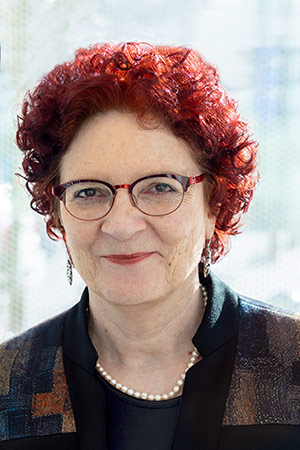Introduction
Introduction by the Director
 The evolution of the COVID-19 pandemic will be the main memory of the year 2020. On the one hand it became clear that the level of preparedness at the country level was insufficient to deal with the spread of the new virus, on the other hand the health community had a steep learning curve regarding the characteristics of the virus and the disease it caused. Furthermore, never has the international collaboration between the public and private sector managed to bring such a variety of vaccine candidates through clinical studies to the market in such a short time.
The evolution of the COVID-19 pandemic will be the main memory of the year 2020. On the one hand it became clear that the level of preparedness at the country level was insufficient to deal with the spread of the new virus, on the other hand the health community had a steep learning curve regarding the characteristics of the virus and the disease it caused. Furthermore, never has the international collaboration between the public and private sector managed to bring such a variety of vaccine candidates through clinical studies to the market in such a short time.
ECDC moved to Public Health Event (PHE)-mode in January 2020 to respond to the requests for scientific and technical support from the Commission and the Member States. At the highest peaks of the pandemic in 2020, most of the Centre’s scientific staff was involved in the first- or second-line response. This meant that large parts of the planned work for 2020 had to be postponed or cancelled, and I thank the ECDC Management Board for their flexibility in approving amended work plans and related budgets several times throughout the year.
Due to the COVID-19 pandemic, the value of decentralised EU Agencies was clearly demonstrated, as they can bring technical expertise from all sectors of society together. In 2020 ECDC worked together with several decentralised EU Agencies. For example, collaborations took place to provide public health information for the technical guidance on COVID-19 infection control for air-travel, trains, or cruise ships. ECDC continued its close collaboration with the European Medicines Agency (EMA) throughout 2020 related to developing the joint EU level monitoring system for COVID-19 vaccine effectiveness and adverse effects.
In January 2020, ECDC’s organisational structure changed to support the implementation of the ECDC Strategy 2021-2027. However, as the organisation moved to response mode, the functionality of the new organisational structure was not realised. During the year, as the pandemic response continued, further changes to the organisational structure were done by e.g. establishing a new disease programme for Coronavirus and Influenza.
As it became clear that pandemic would stay with us for a long time, an external strategic and performance review on ECDC COVID-19 response was carried out to get evidence-based knowledge on our capacity to function and provide meaningful outputs. This review revealed areas in which the Centre must improve its functioning for more effective and efficient response in a future public health crisis while maintaining its core functions and essential outputs.
The lessons learned from the pandemic have demonstrated the need to pursue further the digitalisation of the EU surveillance system, which would enable more timely monitoring of the communicable disease epidemiology with more machine-led collection of data. ECDC will also seek to find better ways to interact with EU Member States to truly understand the gaps in their communicable disease prevention and control systems to better prevent, detect, assess, and respond to future threats.
Looking back at this extraordinary year, I would like to thank the staff at ECDC for their unwavering dedication to their work, the experts in Member States for their willingness to contribute, and colleagues from our EU and international partners for their exceptional collaboration.
Andrea Ammon
ECDC Director
3 March 2021